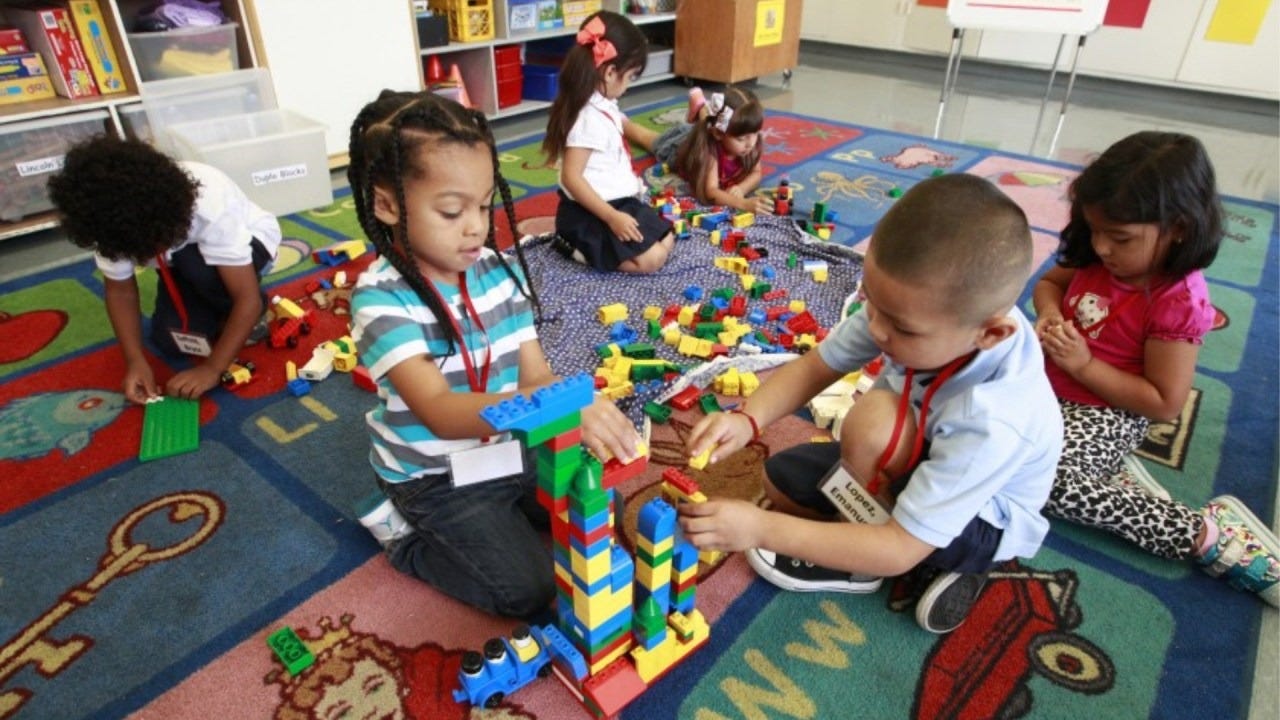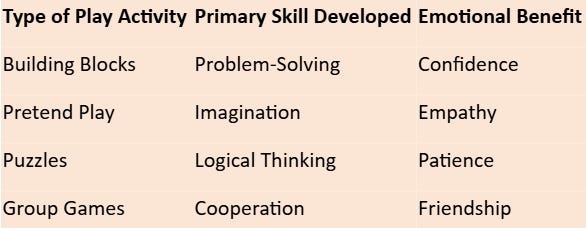What Activities Should Quality Day Care Centers Offer?
Explore how a quality day care center Crandall, nurtures learning, fun, and growth through engaging activities that build confidence and a love.
A good day care center isn’t just about keeping kids safe while parents work. It’s where children start figuring out the world — how things work, how people behave, how to feel curious. Every storytime, every game, every tiny argument over a toy — it’s all part of learning.
Kids need structure, but not in a stiff way. Daily routines help them learn to cooperate, share, and listen. Yet, they also need space to try things on their own. When that balance clicks — safety mixed with independence — kids start to open up. They feel secure enough to explore.
Caregivers at the day care center Crandall, are the quiet guides behind it all. They show patience when kids lose theirs, teach kindness through small actions, and celebrate the tiniest victories. Before long, parents start noticing changes — their child waits patiently, listens longer, adapts better. These aren’t just milestones; they’re the early layers of emotional intelligence and confidence.
Learning Through Play: Day Care Center Crandall
Play is everything at this stage. It’s how kids think, test ideas, and connect with others. Building towers, pretending to cook, and figuring out puzzles — these are early forms of logic, creativity, and problem-solving all rolled into one.
Caregivers don’t just watch — they notice. They see what excites each child and follow that curiosity instead of forcing a lesson. When a child builds something out of blocks, it’s not about getting it “right.” It’s about the process — persistence, small frustrations, the joy of figuring it out.
Over time, these little moments turn into habits of focus, collaboration, and patience. And the best part? The kids think they’re playing.
Creative Arts and Crafts for Expression
Give a child crayons and paper, and you’ll see their thoughts unfold in color. They draw what they feel, not what they see — and that’s the beauty of it.
Art time, on the other hand, isn’t solely about perfect shapes or tidy lines. It’s fundamentally about expression. Glue sticks to fingers, paint drips, and laughter erupts when something looks funny — indeed, all of that matters. It teaches patience, and in addition, it fosters creativity, while also instilling pride in effort rather than focusing solely on the outcome.
Through art, kids learn to connect ideas and express emotions they don’t have words for yet. A red circle might mean anger today and love tomorrow. Caregivers at the day care center Crandall encourage that kind of freedom, which helps children build confidence that goes beyond drawing — it’s the confidence to think differently.
Storytime and Language Growth
Reading together is like opening a new window every day. One story about a brave rabbit or a clumsy bear can teach more about courage and kindness than any lecture ever could.
When kids listen, they don’t just hear words — they learn rhythm, tone, and emotion. They start guessing what happens next and notice patterns in language. Repetition, rhymes, and silly voices make it fun and memorable.
And quietly, something deeper happens: empathy grows. Kids begin to understand that others think and feel differently. They start using words to explain their own feelings, and that’s a huge step in emotional growth.
Music and Movement That Inspire Joy
Music turns any ordinary day into a celebration. Whether it’s a simple clapping song or a room full of dancing kids, rhythm makes learning feel natural. Singing together teaches listening and memory, while movement helps coordination. Even shy kids tend to loosen up during songs — something about music makes it easier to connect. When a group sings or dances together, they learn timing, teamwork, and trust. It’s joy disguised as learning — or maybe learning disguised as joy.
Learning Activities with Purpose
Many early academics can be taught through games. If done right, counting, colors, and letters can all feel like play.
Structured activities aren’t about pushing kids ahead; they’re about sparking curiosity. A puzzle that involves numbers or a matching game with letters builds confidence naturally.
Some centers go further, offering child tutoring service Crandall for reading or basic math. What matters most is that learning stays joyful, never forced. When children enjoy the process, the knowledge sticks.
Life Skills and Responsibility
It might sound small, but when a child helps clean up toys or sets the table, they’re learning about responsibility. These early habits teach accountability and give them a sense of contribution. Kids love feeling useful. Being trusted with a simple task tells them they’re capable. Over time, they connect effort with pride — a feeling that stays long after the toys are gone. These small routines also teach order and respect. They help children see that community works when everyone plays a part.
Social Development Through Group Activities
Kids learn about relationships by being around other kids — it’s as simple and as complex as that. Sharing, waiting turns, and agreeing on rules — these moments shape how they handle the world later on. Group activities like collaborative art or storytelling teach cooperation and empathy. Children start realizing that others have ideas worth listening to.
To further support learning and growth, we are providing a child tutoring service Crandall that complements social interaction with focused educational guidance. This approach builds both confidence and competence in young learners.
Emotional and Behavioral Support
Children need guidance not just in what they do, but in how they feel. Caregivers at the day care center Crandall play a big role in that. When adults respond calmly to frustration, children learn emotional control by example.
Encouragement matters. A few kind words when a child feels stuck can change everything. Over time, kids start managing emotions better — not because they’re told to, but because they’ve seen how it’s done. These early emotional lessons set the stage for resilience. They help children handle disappointment, celebrate small wins, and trust themselves.
Supporting Parents and Families
Day care isn’t separate from home life — it’s an extension of it. When parents and caregivers communicate regularly, children benefit most. Updates, progress notes, and even small chats at pickup time keep parents connected. A shared understanding of goals helps reinforce learning at home. Families looking for care should seek centers that value communication and structure equally. The relationship between home and center shapes how children adjust, grow, and thrive.
Building Confidence for the Future
Confidence is the invisible thread that ties everything together. Through play, structure, and encouragement, children start to believe they can handle new things. They speak more, share more, try more. They learn that mistakes aren’t failures — they’re steps. This sense of self-assurance follows them into school and beyond. For families looking for professional guidance, if you are searching on Google for child care services near me, it’s essential to choose centers that value communication, safety, and structured growth.
Conclusion
A truly nurturing daycare not only watches children but also grows alongside them. Through creative play, quiet moments, and guided learning, kids begin to shape who they will become.
For parents, choosing the right place means finding one that values both curiosity and care. Centers like Teach To Learn Daycare and Tutoring services focus on balanced development — not just teaching, but understanding how each child learns best.
Every early experience matters. The laughter, the stories, the mistakes — they’re all pieces of a bigger picture: helping children step into the world with confidence, kindness, and curiosity that lasts a lifetime.


